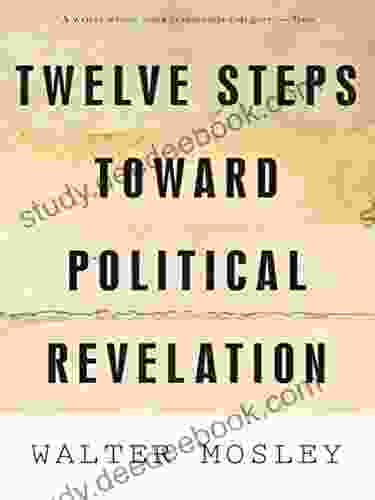An Introduction to Non-Traditional Security Studies

The concept of security has traditionally been associated with the protection of a state's territorial integrity and sovereignty from external threats. However, in recent decades, there has been a growing recognition that security encompasses a much broader range of issues, including non-traditional threats such as climate change, economic instability, and transnational crime.
5 out of 5
| Language | : | English |
| File size | : | 2453 KB |
| Text-to-Speech | : | Enabled |
| Screen Reader | : | Supported |
| Enhanced typesetting | : | Enabled |
| Word Wise | : | Enabled |
| Print length | : | 294 pages |
Non-traditional security studies (NSS) is a field of research that examines the causes, consequences, and responses to these non-traditional security threats. NSS scholars draw on a variety of disciplines, including political science, economics, sociology, and environmental studies, to understand the complex challenges facing the world today.
The Evolution of Non-Traditional Security Studies
The roots of NSS can be traced back to the end of the Cold War, when the threat of nuclear annihilation receded and other global issues began to emerge as priorities. In the 1990s, the United Nations Development Program (UNDP) published a series of reports that highlighted the importance of human security, which encompasses not only traditional concerns like military security but also economic, social, and environmental well-being.
The terrorist attacks of September 11, 2001, further underscored the need for a broader understanding of security. These attacks showed that non-state actors could pose a significant threat to national security, and that traditional military responses were often inadequate.
In recent years, NSS has become increasingly important as the world faces a growing number of complex challenges. These challenges include climate change, which is already having a devastating impact on human populations and ecosystems; economic instability, which can lead to social unrest and conflict; and transnational crime, which can undermine the rule of law and destabilize governments.
The Key Concepts of Non-Traditional Security Studies
NSS scholars use a variety of concepts to understand the causes, consequences, and responses to non-traditional security threats. These concepts include:
- Human security: Human security is the protection of individuals from critical and pervasive threats, such as malnutrition, disease, and violence.
- Environmental security: Environmental security is the protection of the environment from threats such as pollution, climate change, and deforestation.
- Economic security: Economic security is the protection of individuals and societies from economic shocks, such as unemployment, poverty, and inflation.
- Transnational security: Transnational security is the protection of individuals and societies from threats that transcend national borders, such as terrorism, organized crime, and pandemics.
The Challenges of Non-Traditional Security Studies
NSS faces a number of challenges, including:
- The complexity of non-traditional security threats: Non-traditional security threats are often complex and interconnected, making it difficult to develop effective responses.
- The lack of political will: There is often a lack of political will to address non-traditional security threats, as these threats are often not seen as being as important as traditional security threats.
- The lack of resources: There is often a lack of resources available to address non-traditional security threats, as these threats are often not seen as being as important as traditional security threats.
The Future of Non-Traditional Security Studies
Despite the challenges, NSS is an important and growing field of research. As the world faces a growing number of complex challenges, NSS will become increasingly important in helping us to understand and respond to these threats.
There are a number of ways to strengthen NSS, including:
- Increasing research funding: Increasing research funding will help to support the development of new knowledge and tools to address non-traditional security threats.
- Raising awareness of non-traditional security threats: Raising awareness of non-traditional security threats will help to build political will and support for action to address these threats.
- Developing new partnerships: Developing new partnerships between governments, businesses, and civil society organizations will help to pool resources and expertise to address non-traditional security threats.
By taking these steps, we can help to ensure that NSS is able to play a vital role in addressing the complex challenges facing the world today.
NSS is a vital field of research that helps us to understand and respond to the complex challenges facing the world today. By increasing research funding, raising awareness of non-traditional security threats, and developing new partnerships, we can help to strengthen NSS and ensure that it is able to play a leading role in addressing these challenges.
5 out of 5
| Language | : | English |
| File size | : | 2453 KB |
| Text-to-Speech | : | Enabled |
| Screen Reader | : | Supported |
| Enhanced typesetting | : | Enabled |
| Word Wise | : | Enabled |
| Print length | : | 294 pages |
Do you want to contribute by writing guest posts on this blog?
Please contact us and send us a resume of previous articles that you have written.
 Story
Story Reader
Reader E-book
E-book Newspaper
Newspaper Paragraph
Paragraph Shelf
Shelf Bibliography
Bibliography Preface
Preface Annotation
Annotation Footnote
Footnote Manuscript
Manuscript Scroll
Scroll Codex
Codex Bestseller
Bestseller Library card
Library card Narrative
Narrative Biography
Biography Autobiography
Autobiography Reference
Reference Dictionary
Dictionary Thesaurus
Thesaurus Narrator
Narrator Character
Character Resolution
Resolution Librarian
Librarian Catalog
Catalog Card Catalog
Card Catalog Study
Study Research
Research Lending
Lending Reserve
Reserve Journals
Journals Reading Room
Reading Room Rare Books
Rare Books Special Collections
Special Collections Interlibrary
Interlibrary Study Group
Study Group Dissertation
Dissertation Reading List
Reading List Book Club
Book Club Laurie L Patton
Laurie L Patton John Nevill
John Nevill Matthew Eldridge
Matthew Eldridge Carol Turner
Carol Turner Dianne June
Dianne June Oliver J Rich
Oliver J Rich Prasad Gogada
Prasad Gogada Linda Legarde Grover
Linda Legarde Grover Russell Friedman
Russell Friedman Sue Pethick
Sue Pethick Gayle Wald
Gayle Wald Erika Parker Price
Erika Parker Price Sally Brown
Sally Brown Janet Treanor
Janet Treanor J Wild
J Wild Alfredo Candal
Alfredo Candal Noam Chomsky
Noam Chomsky Ross Bentley
Ross Bentley Mary Mapes Dodge
Mary Mapes Dodge Robert D Romanyshyn
Robert D Romanyshyn
Light bulbAdvertise smarter! Our strategic ad space ensures maximum exposure. Reserve your spot today!

 Jaime MitchellClose Encounters with Archangel Michael and Archangel Raphael: An Angelic...
Jaime MitchellClose Encounters with Archangel Michael and Archangel Raphael: An Angelic... Keith CoxFollow ·3.9k
Keith CoxFollow ·3.9k Tennessee WilliamsFollow ·16.2k
Tennessee WilliamsFollow ·16.2k Joseph FosterFollow ·16.5k
Joseph FosterFollow ·16.5k Federico García LorcaFollow ·11k
Federico García LorcaFollow ·11k Mikhail BulgakovFollow ·14k
Mikhail BulgakovFollow ·14k Shawn ReedFollow ·12.9k
Shawn ReedFollow ·12.9k Tyler NelsonFollow ·7.8k
Tyler NelsonFollow ·7.8k Vince HayesFollow ·15.7k
Vince HayesFollow ·15.7k

 Dominic Simmons
Dominic SimmonsIcky Island: An Unforgettable Adventure for Kids!
Introducing Icky Island: A Delightful One...

 Carlos Fuentes
Carlos FuentesThe Midnight Breed: Embracing the Shadows and Unlocking a...
Welcome to the captivating world of...

 Ike Bell
Ike BellTwelve Steps Toward Political Revelation: A Path to...
Politics, often perceived as a complex and...

 Cameron Reed
Cameron ReedTravels in Arizona Goldfield: Unraveling the Threads of...
Nestled amidst the rugged...

 John Grisham
John GrishamFlashpoints of Cinema History and Queer Politics:...
The relationship between cinema history and...
5 out of 5
| Language | : | English |
| File size | : | 2453 KB |
| Text-to-Speech | : | Enabled |
| Screen Reader | : | Supported |
| Enhanced typesetting | : | Enabled |
| Word Wise | : | Enabled |
| Print length | : | 294 pages |












